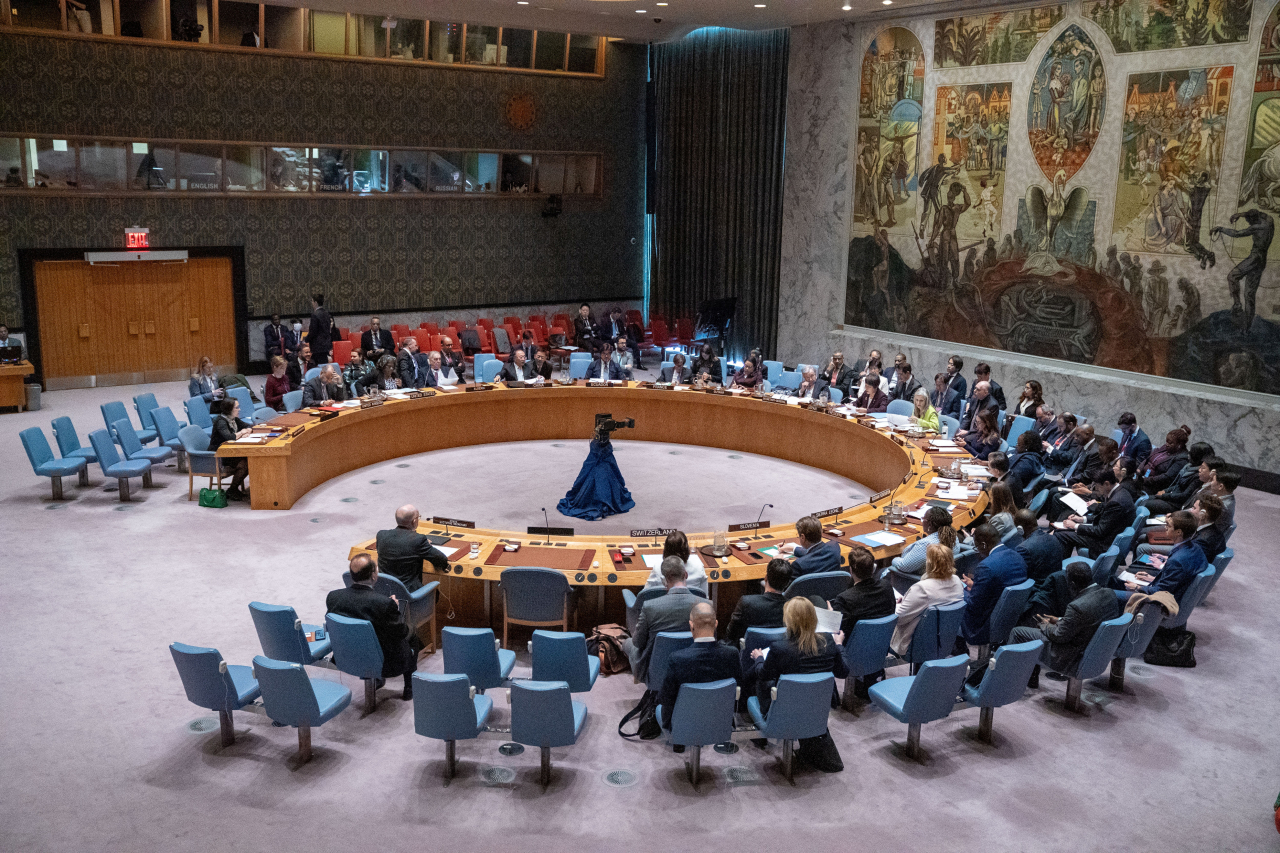
South Korea, the United States and Japan, in their role as members of the United Nations Security Council on Monday, collectively condemned North Korea for its illicit nuclear proliferation and Russia for its alarming threats to use nuclear weapons on the battlefield in Ukraine.
During a ministerial meeting on nuclear disarmament and nonproliferation at the UN Security Council, UN Secretary-General Antonio Guterres remarked, "We meet at a time when geopolitical tensions and mistrust have escalated the risk of nuclear warfare to its highest point in decades."
"Nuclear saber-rattling must stop. Threats to use nuclear weapons in any capacity are unacceptable," Guterres said.
South Korean Ambassador to the UN Hwang Joon-kook underscored, "The prospect of nonproliferation is no less bleak," specifically singling out North Korea.
"Indeed, the DPRK, the world's preeminent proliferator, continues to blatantly violate multiple Security Council resolutions and develop its nuclear and missile programs," Hwang said, referring to North Korea by its official name, the Democratic People's Republic of Korea.
"While we are discussing nonproliferation at this chamber, the DPRK continues its provocations, including yesterday's launches of multiple ballistic missiles, supposedly targeting densely populated areas and key military installations of my country."
On Tuesday, North Korean state media reported that the country's leader, Kim Jong-un, oversaw a live-fire drill involving "superlarge multiple rocket launchers," purportedly capable of carrying nuclear payloads, the day before.
The South Korean military said North Korea fired what was presumed to be multiple short-range ballistic missiles Monday. The US has classified the 600-millimeter superlarge multiple rocket system as the KN-25 short-range ballistic missile.
The North Korean state media reported that a test was carried out to simulate an airburst explosion using a shell fired from the superlarge multiple rocket launcher at a predetermined altitude above the target. South Korea's Unification Ministry on Tuesday said the midair explosion test hinted at the potential use of tactical nuclear weapons.
Hwang also denounced "precarious and irresponsible nuclear rhetoric amid Russia's war of aggression on Ukraine," expressing concerns over Russia's deployment of tactical nuclear weapons in Belarus.
Hwang further highlighted Russia's withdrawal from the ratification of the Comprehensive Nuclear Test Ban Treaty or CTBT and suspension of the New START nuclear treaty.
US Ambassador to the UN Linda Thomas-Greenfield echoed him, stating, "Russia has irresponsibly invoked dangerous nuclear rhetoric and walked away from several of its arms control obligations."
In addition, Thomas-Greenfield directly criticized China and Russia for facilitating North Korea's nuclear buildup.
"What's more, both countries have defended and even enabled dangerous proliferators," she said during the meeting.
"That brings me to the DPRK, which continues its unlawful development of weapons of mass destruction and ballistic missiles, in violation of multiple Security Council resolutions," she remarked, condemning Monday's launches of ballistic missiles recognized as delivery systems for nuclear weapons.
Japanese Foreign Minister Yoko Kamikawa, who chaired the meeting as part of Japan's presidency of the UN Security Council, emphasized Japan's intolerance of both Russia's nuclear saber-rattling and North Korea's advancements in missile and nuclear programs.
"Russia's nuclear threats, let alone any use of nuclear weapons in the context of the situation in Ukraine, are absolutely unacceptable," Kamikawa said.
Kamikawa also pointed out that North Korea's missile and nuclear development, along with its ballistic missile launches, pose a threat to the peace and stability of the region and the international community.
"It is totally unacceptable," she highlighted. "Moreover, there is a possibility of further provocations, including a nuclear test."
Kamikawa emphasized the imperative for unity among countries in opposing any actions that undermine the pursuit of a world without nuclear weapons.
"A rapid buildup of nuclear capabilities by certain countries could spark a nuclear arms race."





